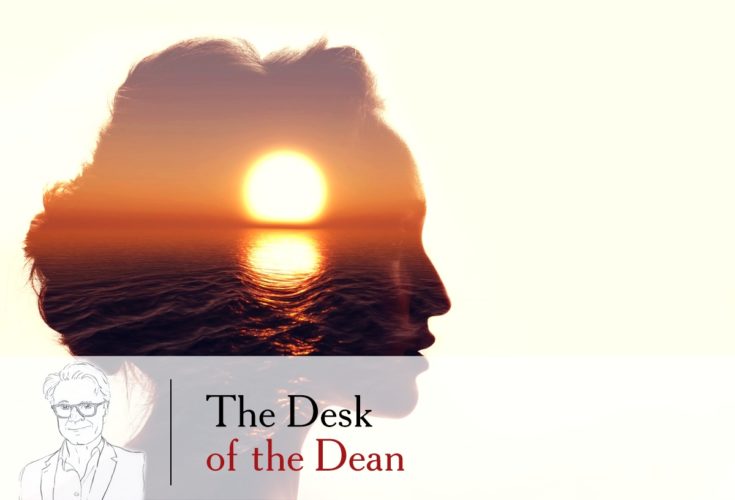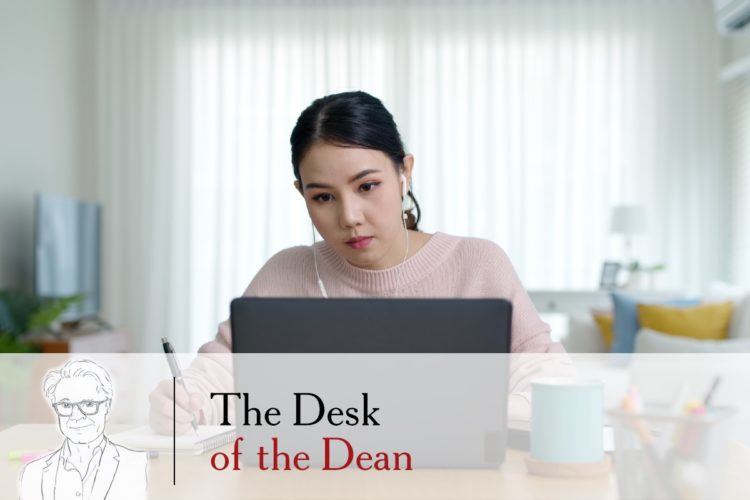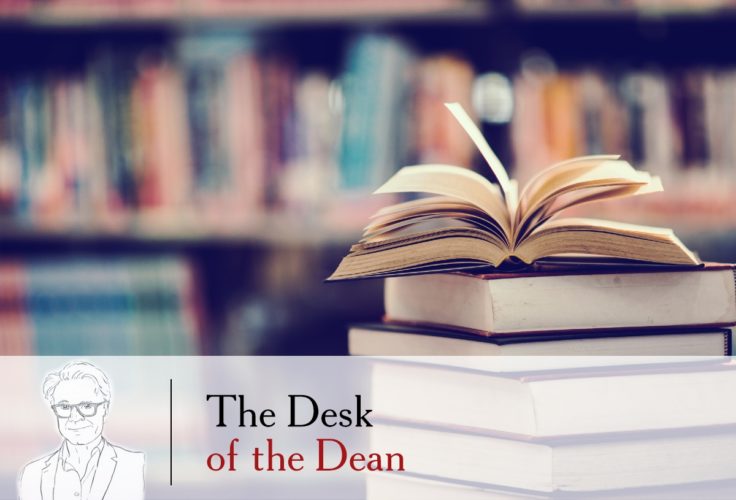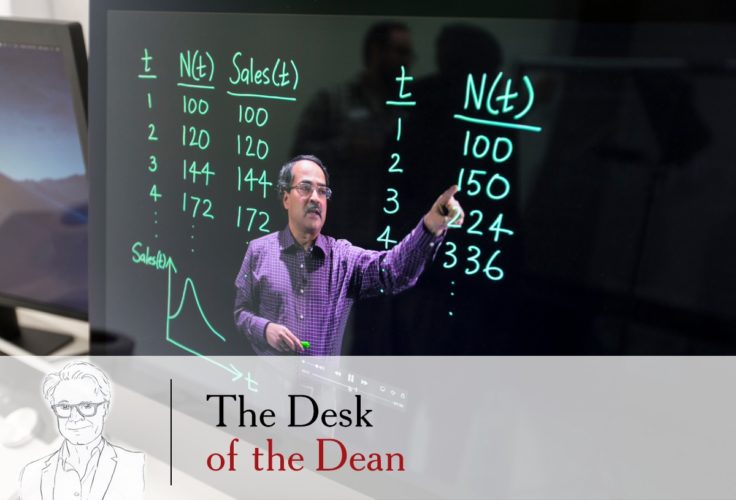“It must be quiet now that the students are gone.”
How many of us in higher education have heard this summertime sentiment from friends and family outside the halls of academia? Perhaps it was true at some point in the past. But today?
The reality is much different at WashU Olin. The students aren’t gone and, in fact, never were. Specialized masters students have been in class since May. First-year MBA students began their orientation nearly a month ago and arrived on campus to begin core classes in late June. And, across the school we are in constant preparation to welcome our undergraduate students.
Meanwhile, nothing is quiet about campus life, even as many of us continue working from home.
With a close eye on public health guidelines, we anticipate on-campus classes, face-to-face events, well-staffed offices and populated study rooms in the fall.
Yet it bears remembering that this transition—this pivot to a new normal—is as consequential as the one we experienced in March 2020.
Remaining in the moment
With that in mind, I sought out some insights from my colleague Erik Dane, associate professor of organizational behavior. Erik researches managerial cognition—how managers focus attention, solve problems and make decisions.
In his work, Erik studies “mindfulness,” which he characterizes as “focusing attention on what is happening in the here-and-now, in terms of both the events surrounding us and the thoughts, emotions and sensations occurring within us.”
As Erik points out, this summertime period is less about a lull in activity and potentially more about refocusing our minds for the changes ahead.
“In some ways, the pandemic might have served to heighten mindfulness for many leaders and employees, especially at the outset of the crisis,” Erik said. “This was brand new territory for us, and novel circumstances can sensitize people to their environment, especially when decisions need to be made and problems need to be solved.”
He speaks of this phenomenon as “traveler’s mind,” which he explores in an essay published last year in the Journal of Management Inquiry.
Updating many things we knew about teaching and researching and career advising in a matter of weeks was not easy, Erik acknowledges. Neither was learning to work remotely while accounting for the drastic shift in our personal lives. It certainly made us vigilant to our thoughts, our interactions, our decision-making.
It made us mindful.
When the abnormal becomes routine
“Once new habits and routines are established, it’s easier for people to screen out unfolding events and stay the course with working and communicating in line with ‘grooved’ patterns of thought and behavior,” he said. “The fact that such normalization could arise in truly unprecedented circumstances is remarkable.”
Erik reminds us of our powerful skill as humans to rechart the course of our minds when we sense ourselves—our thoughts and our feelings—veering in unproductive directions, even during these most challenging of times.
And he also reminds us that we may need to call upon that skill again as we return to whatever new version of normal emerges. Sure, the buzz of hallway conversation, the lines, the study partners will begin to return. So will interruptions at the office door, lines for the coffee pot and the occasionally contentious meeting.
“Curiously, the return to the old will likely feel quite new,” Erik said. “The things we once took for granted will feel like gifts.”
Another pivot awaits
As the novelty of being back on campus fades, our need to cultivate mindfulness remains. In fact, it will be as important as it ever was. The more normalized our circumstances, the more mindfulness tends to elude us.
So, as we look forward to a version of Olin life reminiscent of two years ago, I appreciate Erik’s reminder, as well as the suggestion that we take time this summer to develop practices that keep us grounded, keep us mindful and ready us for the transition to come.
Meditation can help, Erik says. So can a mindful walk in a park, time for personal reflection or maintaining a gratitude diary. “These practices and more can provide us with bursts of inner peace and insight in these transitional times.”
With all that is happening at WashU Olin, a quiet campus remains elusive. But if we heed Erik’s advice, we may be able to quiet our minds as we anticipate another pivot—to a better place.








